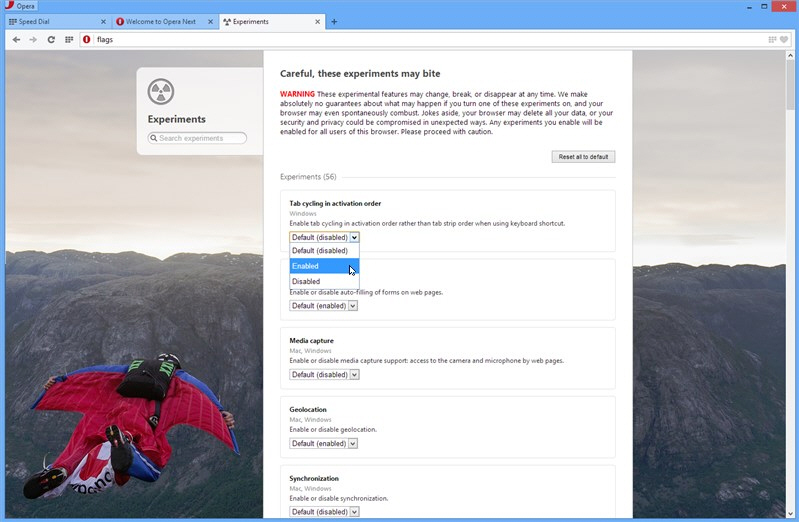
Norwegian browser developer Opera Software has confirmed the switch of its browser development to a rapid release cycle with the launch of Opera Next 16. The new version number comes less than a month after Opera 15 FINAL was released, which saw Opera switch from its own proprietary Presto web engine to the Blink engine used by Google Chrome.
As with all rapid release cycle updates, there are no major overhauls to be found in Opera Next 16, although a number of interesting new features have been showcased as the next iteration starts its journey towards final release.
Opera 16 -- which is based on Chromium 29, the engine that powers Chrome 29 (currently in beta) -- comes with support for the W3C Geolocation API, a form auto-filler tool and opera:flags, a shortcut to settings that allows adventurous users to play with experimental features.
Users will also find a new setting under Browser > Start Page called "Preload Discover contents", which allows users to switch this feature off.
Platform-specific updates include support for Jump Lists in Windows 7 and 8, plus the addition of Presentation mode to the Mac platform.
In addition to these existing features, Opera has revealed the next set of features it’s working on, with the promise that early versions of these will be rolled out into the Opera Next build over the next few weeks. These include proper bookmarks support, synchronization via Opera Link, improved tab handling and themes.
Opera Next 16 is considered "alpha" software, which is why -- like Firefox Aurora -- it’s designed to run alongside an existing stable build of Opera, allowing users to experiment with new features without affecting their day-to-day browsing. Updates are frequent as bugs are discovered and fixed, but users should not attempt to rely on Opera Next as their primary browser, hence the separate installation.
Opera Next 16 is available as a freeware download for Windows and Mac now, as is Opera 15 FINAL.

